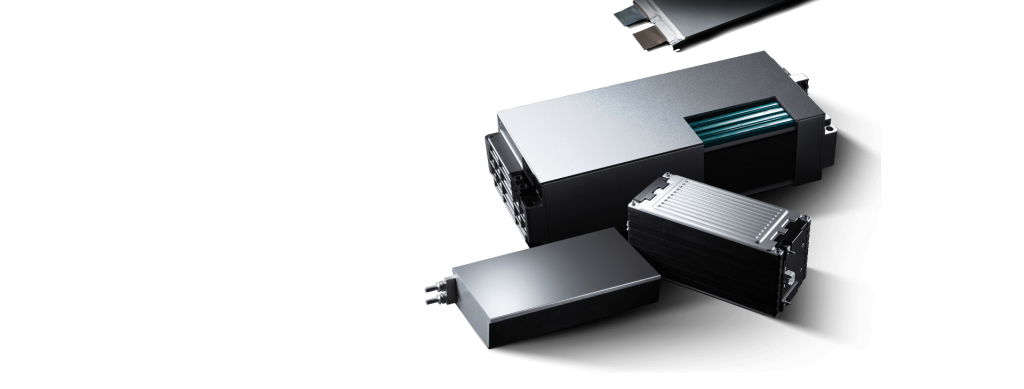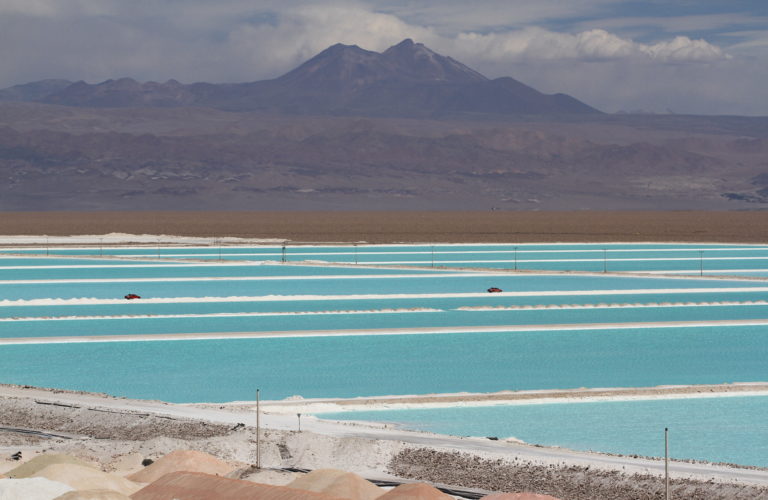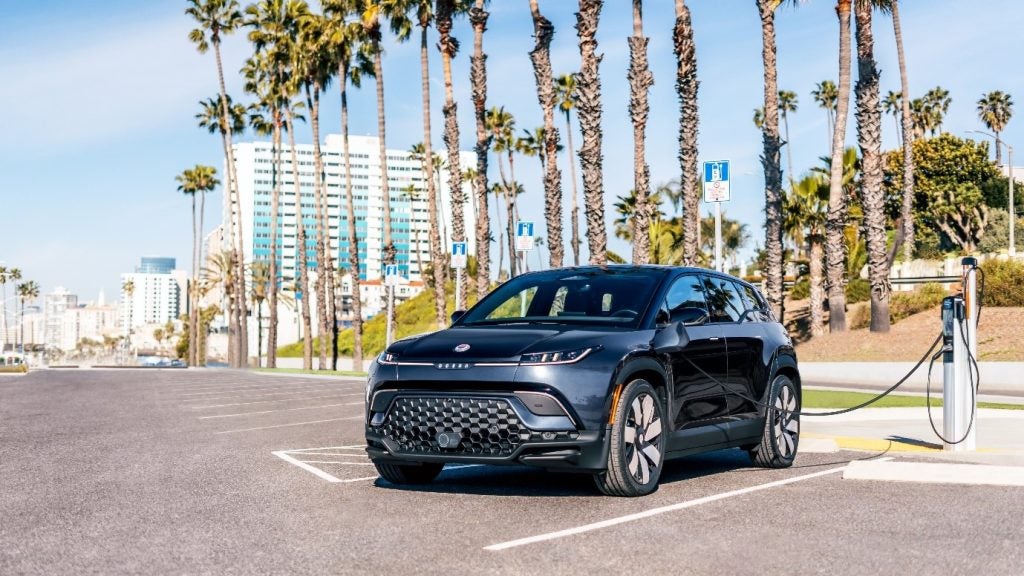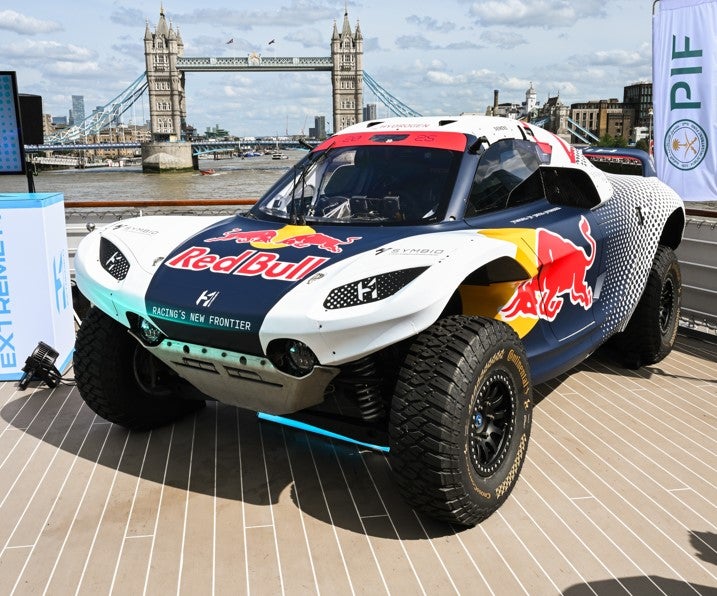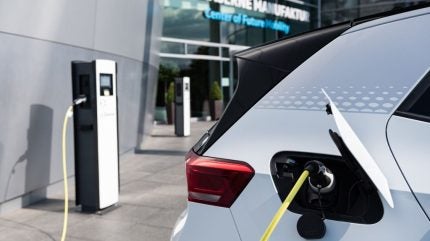
How are automotive companies setting strategies for net zero carbon emissions? In the auto sector, most OEMs aim to reach net zero by 2050, but emissions reporting and standards remain weak. Incoming regulatory pressure on emissions will require companies to improve their emissions reporting and curate more pragmatic net-zero strategies. Emissions from business operations (Scope 1 and 2) only make up around 1% of total emissions. The transition to using renewable energy is the best way to reduce Scope 1 and 2 emissions. This can be achieved through directly installing renewable energy sources onsite or purchasing electricity from renewable energy providers. Value chain emissions (Scope 3) comprise 99% of total emissions. Most of these arise from the production of purchased goods and services and the use of sold vehicles. The sector’s main decarbonisation strategy is the electrification of vehicle fleets. Yet, most automakers are behind on their electrification targets. Moreover, the production of electric vehicles (EVs) emits more emissions than the production of internal combustion engine (ICE) vehicles. This presents additional challenges and means automakers must adopt a circular business model and increase the use of sustainable materials. This will help automakers reduce the environmental impact of EV production.
Switching fleet to EV
Fleet electrification can be a challenge for fleet operators. ‘Plug Me In’ says it can help to support businesses make the switch. As many fleet operators eye the switch to an electrified fleet, it is also clear that they have questions surrounding the process of making such a radical change. A leading subsidiary of the Calisen Group, Plug Me In, is working to support businesses to review their options when it comes to making the electrification switch. The company offers advice to businesses contemplating a switch to electric vehicles but are unsure about how or where to start the transition. We spoke to Andrew Stead, commercial director, Plug Me In, to discuss how the company can assist fleets and highlight the additional benefits of making the EV switch.
RIP diesel
Geely controlled Volvo Cars has built its last diesel, an XC90 at Torslanda, Sweden. Its Ghent plant, in Belgium, produced its last diesel, a V60 in February. The majority of Volvos sold in Europe in 2019 ran on diesel while electric models were just starting to gain traction (anyone remember the C30 Electric?)
Hyundai spending big
How well do you really know your competitors?
Access the most comprehensive Company Profiles on the market, powered by GlobalData. Save hours of research. Gain competitive edge.

Thank you!
Your download email will arrive shortly
Not ready to buy yet? Download a free sample
We are confident about the unique quality of our Company Profiles. However, we want you to make the most beneficial decision for your business, so we offer a free sample that you can download by submitting the below form
By GlobalDataHyundai Group (HMG), including Hyundai Motor and Kia Corporation, said it planned to invest KRW68trn (US$50bn) by 2026 to strengthen its electric vehicle (EV) operations, drive forward its software defined vehicle (SDV) strategy and develop future mobility “solutions”. In the next three years, the group’s average annual investment would increase 30% to KRW22.7trn from KRW17.5trn in 2023. HMG said it planned to hire 80,000 new employees over the next three years, including 44,000 in vehicle electrification, SDVs and carbon neutrality.
Xpeng Europe expansion
EV maker Xpeng Motors said it would enter the German market. Launches in France, Italy and the UK would follow. The automaker already operates in Denmark, (EV friendly) Norway, Sweden and the Netherlands, and has targeted a 3% share of the new energy vehicle (NEV) segment in Germany by the end of 2024. Xpeng operates through established dealer networks and, when sales start in May, will have 24 retail locations across Germany.
UK car output up
UK car production rose in February, up 14.6% to 79,907 units, according to the latest figures published by the Society of Motor Manufacturers and Traders (SMMT). It was the sixth consecutive month of growth and best February performance since 2021, with nearly all volume manufacturers posting uplifts, driven by output for the domestic market which grew 58.0% to 20,658 units, an increase of 7,585. Justin Cox, an analyst at GlobalData, said: “In the year-ago comparisons, we’re still seeing some rebound from the supply shortages caused by the global chips crisis that spilled over into 2023, but the February gain is obviously very welcome for the UK’s auto industry. Our forecast for this year sees UK car output at around 0.8 million units. It was much higher before the pandemic, but we see it settling in the medium term at around a million units a year.”
CVs too
UK commercial vehicle (CV) production almost doubled in February 2024, with 12,927 vans, trucks, taxis, buses and coaches leaving factory lines, according to the Society of Motor Manufacturers and Traders (SMMT). The 98.4% year on year volume rise was the best February performance since 2008 but followed a particularly weak February 2023 as supply chain issues, notably semiconductor shortages, impacted output. February’s production boost was driven by significant demand for exports which rose 188% to 10,011 units, accounting for 77.4% of the month’s production.
Rizon starts deliveries
The first batch of Daimler Truck’s all-electric Rizon brand trucks have been delivered to customers in California. More units are scheduled to be handed over throughout March. Rizon’s trucks are class 4 and 5 medium-duty battery-electric vehicles, ranging from 15,995lb to 17,995 lb. in gross vehicle weight.
Battery supplier renamed
Toyota Motor Corporation said it would rename Primearth EV Energy (PEVE), its electric vehicle (EV) battery subsidiary, after it completed acquisition of all of the outstanding shares held by joint venture partner Panasonic Holdings. In early March, the automaker said it had agreed to acquire Panasonic’s 19.5% stake in PEVE by the end of the month, making the battery maker a 100% owned subsidiary. PEVE headquarters would remain in Kosai City, Shizuoka Prefecture, and the company would continue to focus mainly on supplying the Toyota group. Toyota said, from 1 October 2024, PEVE would be renamed Toyota Battery Company to reflect its growing role within the group.
‘Lecky Toyota truck
Toyota plans volume production of a battery electric Hilux pickup truck variant by the end of 2025, the president of its Thailand unit has said. According to Reuters, the announcement came just a few days after the Thai government said rival Isuzu Motors would manufacture its battery D-Max pickup in Thailand by 2025. The news agency noted Thailand is a regional automaking hub with pickup trucks among the vehicles produced for domestic sale and export.
Money men upbeat
Top executives at General Motors and Ford have delivered upbeat outlooks for the US auto market and their profits, saying US consumer demand remains strong, according to a Reuters report. GM chief financial officer (CFO) Paul Jacobson reportedly said vehicle sales in March were “looking really strong” after a strong February as GM incentives came down. “All in all, a really, really good start to the year and we feel good about where we’re trending,” Jacobson said. GM had assumed a 2-2.5% price reduction but this year had not seen any falls. “Demand is actually hanging in pretty strong,” Jacobson said. Meanwhile, Ford CFO John Lawler reaffirmed the company’s outlook for annual core profit of between US$10bn and $12bn. “Things are looking pretty good” in the US market, and prices are holding up better than expected, he said.
Lucid funding
Lucis has entered into an agreement with its majority stockholder, Ayar Third Investment Company. It will buy $1bn of newly created series of convertible preferred stock via private placement, subject to customary closing conditions. Ayar is an affiliate of the Saudi Arabia’s Public Investment Fund (PIF).
BW China collaboration
BorgWarner New Energy (Xiangyang) has announced a collaboration with global industrial real estate company Goodman Group, and zero-emission long-haul truck developer Windrose Technology. They will jointly develop 960kW fast-charging infrastructure for electric long-haul trucks for Goodman’s properties in China. In the first half of 2024, the parties will test and establish the first pilot charging station at Goodman Citylink near Beijing.
Have a nice weekend.
Graeme Roberts, Deputy Editor, Just Auto



